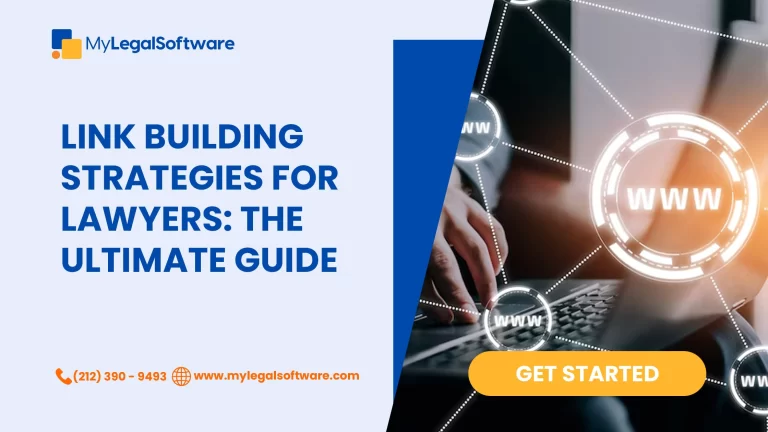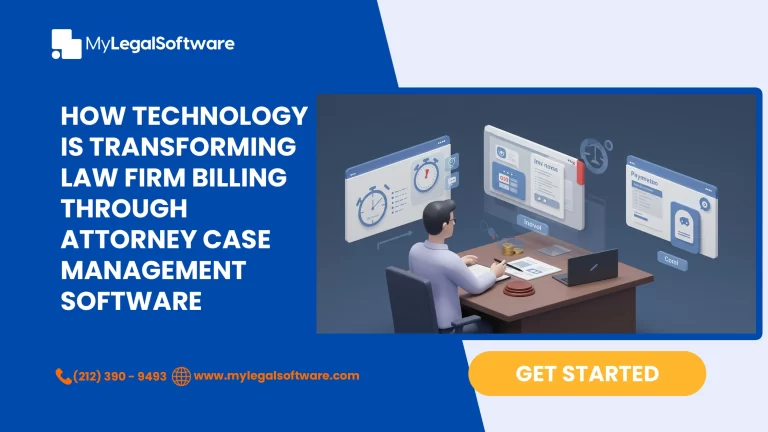Best Practices for Data Security in Law Firms
In recent times, it has become more necessary to keep one’s client’s sensitive information secure. Data breaches, cyberattacks, and the ever-growing risk of information theft can put legal firms at serious risk. After all, a law firm’s credibility rests on its ability to safeguard privileged and confidential data.
But how exactly can legal professionals fortify their cybersecurity defences? This guide walks you through the best practices for Data Security in Law Firms, helping you stay compliant, protect your reputation, and ensure peace of mind for you and your clients.
Why Data Security Matters in Legal Firms
Lawyers handle troves of confidential data—from case files and contracts to intellectual property and client communications. This makes them prime targets for cybercriminals. A single data breach can not only disrupt your operations but could also lead to legal repercussions, financial losses, and irreversible damage to client trust.
According to the ABA Tech Report, law firms are becoming increasingly targeted, with about 29% of firms reporting a security breach in the last year. These numbers highlight just how important Cybersecurity has become for Lawyers. Let’s explore some of the best practices that can safeguard your firm against these threats.
Prioritize Encryption for Sensitive Data
One of the top Legal Data Protection Strategies is encryption. Encryption is the process of converting information into a code to prevent unauthorized access. By encrypting sensitive client data, both at rest and in transit, you ensure that even if hackers intercept the data, they won’t be able to read or use it.
Best Practice: Always use end-to-end encryption for emails, cloud storage, and file sharing. For instance, if you’re sending client information via email, ensure it is encrypted with a secure email system. The same goes for storing sensitive data on servers—encrypting data at rest is crucial to protecting it from any unauthorized access.
Implement Multi-Factor Authentication (MFA)
Simple passwords are no longer enough to secure data. The adoption of multi-factor authentication (MFA) adds an extra layer of security by requiring not just a password but also a secondary form of verification, such as a text message code or fingerprint scan. This reduces the risk of unauthorized access, even if a password is compromised.
Best Practice: Apply MFA across all sensitive platforms, from case management systems to email servers. Every staff member at your firm should understand the importance of this practice and implement it on any device that accesses sensitive information.
Train Your Team on Cybersecurity Best Practices
Your security measures are only as strong as the people who implement them. One of the most overlooked Data Security in Law Firms best practices is regular cybersecurity training for staff. A well-trained team can identify potential threats, such as phishing emails or suspicious attachments, before they cause harm.
Best Practice: Host regular cybersecurity training sessions for your employees to ensure everyone is up-to-date with the latest threats and protection strategies. Emphasize the importance of strong passwords, spotting phishing scams, and safe browsing habits.
Control Access to Data with Role-Based Permissions
Not everyone at your firm needs access to all client data. By implementing role-based access control, you limit the exposure of sensitive information to only those who absolutely need it.
Best Practice: Establish a system where different roles within your firm are assigned specific data access levels. For example, paralegals may not need access to the same confidential data as attorneys. Periodically review these access levels to ensure that only authorized individuals have access to sensitive information.
Regularly Back Up Your Data
Imagine losing an entire case file or client database due to a ransomware attack or a technical failure. Regularly backing up your data ensures that you have a safety net in case the worst happens. It’s also a key component of Sensitive Information Security that can prevent the loss of crucial information during unexpected incidents.
Best Practice: Schedule automatic daily or weekly backups of all your files and store them in secure, encrypted locations—both on-premise and in the cloud. This way, in the event of a breach or data loss, your files can be restored quickly.
Utilize Secure Cloud Solutions
Many law firms now use cloud-based platforms to store and manage their data. However, not all cloud solutions are created equal. When selecting a cloud provider, it’s essential to choose one that complies with industry regulations and prioritizes security.
Best Practice: Use cloud solutions that offer encrypted storage and ensure your provider has strict security measures in place. Additionally, make sure your legal software is designed with Cybersecurity for Lawyers in mind, like My Legal Software, which offers secure, all-in-one management tools tailored to law firms.
Establish an Incident Response Plan
Even the best preventive measures can’t guarantee 100% protection from cyberattacks. That’s why having a well-defined incident response plan is essential. This plan outlines the steps your firm will take in the event of a security breach, from identifying the source of the breach to notifying clients and taking corrective actions.
Best Practice: Develop an incident response plan and ensure every team member understands their role in it. Include protocols for quickly shutting down affected systems, notifying key stakeholders, and collaborating with IT specialists to resolve the issue.
Keep Software and Systems Up to Date
Outdated software is a playground for cybercriminals, as it often contains vulnerabilities that hackers exploit. Regularly updating your software and systems ensures that you have the latest security patches installed to protect against emerging threats.
Best Practice: Implement a policy of automatic updates for all software and security systems used in your firm. This includes your operating systems, antivirus programs, firewalls, and any legal management software.
Protect Mobile Devices
With many attorneys working remotely or on-the-go, mobile devices such as smartphones, laptops, and tablets are prime targets for hackers. Securing these devices is just as important as securing your office’s network.
Best Practice: Ensure all mobile devices used by your team have strong passwords, encryption, and remote-wipe capabilities in case they are lost or stolen. Encourage attorneys to only access client information through secure, encrypted connections and to avoid using public Wi-Fi networks.
Conclusion
Data security is no longer optional for law firms; it’s a critical aspect of running a successful legal practice. By implementing these best practices—from encryption and multi-factor authentication to regular backups and cybersecurity training—you’ll certainly be on your way to protecting your firm and your clients from cyber threats.
Don’t wait until it’s too late. Start strengthening your cybersecurity defences today with My Legal Software, which offers secure, all-in-one solutions designed specifically for legal professionals. Protect your data, maintain your clients’ trust, and keep your firm running smoothly with industry-leading legal software.
Want to learn about automation in legal processes? Go here.
Frequently Asked Questions
- What is the most common cybersecurity threat for law firms?
The most common threat is phishing attacks. Cybercriminals use emails designed to look legitimate to trick employees into clicking on malicious links or sharing sensitive information. Regular training can help employees recognize these scams.
- How can law firms protect sensitive client data?
Law firms can protect sensitive data by implementing encryption, multi-factor authentication, role-based access control, and regular data backups. Using secure legal software and educating staff on cybersecurity best practices is also crucial.
- What should law firms do in the event of a data breach?
In the event of a data breach, law firms should immediately follow their incident response plan, which includes identifying the source of the breach, notifying affected clients, securing compromised systems, and collaborating with IT professionals to resolve the issue.









